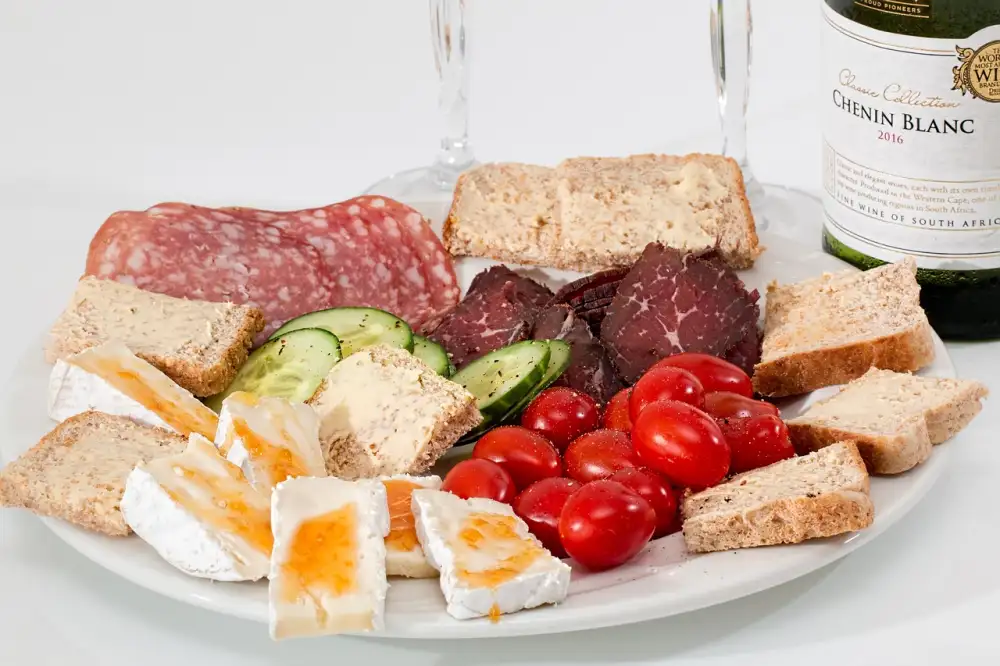Power Up Your Protein Intake with These High Protein Vegetarian Foods

- Benefits of Including High Protein Foods in a Vegetarian Diet
- Legumes: A Powerhouse of Plant-Based Protein
- Nuts and Seeds: Nutritional Powerhouses for Vegetarians
- Whole Grains: A Great Source of Protein for Vegetarian Diets
- Dairy and Dairy Alternatives: Protein-Rich Options for Vegetarians
- Incorporating Tofu and Tempeh into a High Protein Vegetarian Diet
- Quinoa: The Complete Protein Grain for Vegetarians
- High Protein Vegetarian Recipes to Try
A common misconception is that vegetarians struggle to meet their protein needs. However, there are plenty of plant-based foods that are high in protein and can provide all the essential amino acids required by the body. Including these foods in a vegetarian diet not only ensures an adequate protein intake but also offers numerous health benefits. In this article, we will explore the world of high protein vegetarian foods and discover how they can power up your protein intake for optimal health. So, let's dive in and uncover the wonders of vegetarian protein sources!
Benefits of Including High Protein Foods in a Vegetarian Diet
Including high protein foods in a vegetarian diet offers numerous benefits. Firstly, protein is essential for building and repairing tissues, making it crucial for overall growth and development. Secondly, protein helps to maintain muscle mass, which is especially important for vegetarians who may have limited sources of protein. Additionally, high protein foods can help to keep you feeling full and satisfied, reducing the temptation to overeat or indulge in unhealthy snacks. Lastly, incorporating high protein foods into your vegetarian diet can help to stabilize blood sugar levels and support healthy weight management.
Legumes: A Powerhouse of Plant-Based Protein
Legumes, such as beans, lentils, and chickpeas, are a true powerhouse of plant-based protein. They are not only rich in protein but also packed with essential nutrients like fiber, iron, and folate. Incorporating legumes into a vegetarian diet can provide the body with the necessary amino acids it needs for muscle repair and growth. Additionally, legumes have been shown to help lower cholesterol levels and reduce the risk of heart disease. With so many varieties to choose from, including black beans, kidney beans, and split peas, there are endless possibilities for delicious and nutritious meals that will power up your protein intake.
Nuts and Seeds: Nutritional Powerhouses for Vegetarians
Nuts and seeds are nutritional powerhouses for vegetarians, packed with protein, healthy fats, fiber, vitamins, and minerals. Almonds, walnuts, cashews, and pistachios are excellent sources of protein. Chia seeds, flaxseeds, and hemp seeds are also rich in protein and omega-3 fatty acids. Adding a handful of nuts or seeds to your meals or snacks can significantly boost your protein intake. They are versatile ingredients that can be sprinkled on salads, added to smoothies, or used in baking for a nutritious and satisfying vegetarian diet.
Whole Grains: A Great Source of Protein for Vegetarian Diets
Whole grains are not only a great source of fiber and essential nutrients, but they also pack a punch when it comes to protein. Quinoa, for example, is a complete protein grain that contains all nine essential amino acids. Other whole grains like brown rice, oats, and barley are also rich in protein and can be easily incorporated into vegetarian diets. These grains provide a sustained release of energy and help keep you feeling full for longer periods of time. So, if you're looking to power up your protein intake as a vegetarian, don't forget to include whole grains in your meals.
Dairy and Dairy Alternatives: Protein-Rich Options for Vegetarians
Dairy products and their alternatives are excellent sources of protein for vegetarians. Milk, yogurt, and cheese are all rich in protein and can be easily incorporated into a vegetarian diet. For those who avoid dairy, there are plenty of non-dairy options available such as almond milk, soy milk, and coconut milk. These alternatives also provide a good amount of protein. Adding these protein-rich dairy products or alternatives to your meals can help boost your protein intake and ensure you meet your nutritional needs on a vegetarian diet.
Incorporating Tofu and Tempeh into a High Protein Vegetarian Diet
Tofu and tempeh are two excellent sources of plant-based protein that can easily be incorporated into a high protein vegetarian diet. Tofu, made from soybeans, is incredibly versatile and can be used in a variety of dishes. It has a mild flavor and absorbs the flavors of marinades and spices well. Tempeh, on the other hand, is made from fermented soybeans and has a nutty flavor and firmer texture.
Both tofu and tempeh are rich in protein, with tofu containing around 10 grams per 3-ounce serving, while tempeh provides around 15 grams per 3-ounce serving. They also offer other essential nutrients like iron, calcium, and magnesium.
To incorporate tofu into your diet, try adding it to stir-fries, salads, or soups. You can also marinate it before grilling or baking for added flavor. Tempeh works well as a meat substitute in dishes like tacos or sandwiches. It can also be crumbled and used as a topping for salads or added to pasta sauces.
By including tofu and tempeh in your high protein vegetarian diet, you not only boost your protein intake but also enjoy the benefits of these nutritious plant-based foods. So go ahead and experiment with these versatile ingredients to power up your vegetarian meals!
Quinoa: The Complete Protein Grain for Vegetarians
Quinoa, often referred to as a superfood, is a complete protein grain that is perfect for vegetarians looking to boost their protein intake. Unlike other grains, quinoa contains all nine essential amino acids, making it a complete source of protein. This makes it an excellent choice for vegetarians who may struggle to get all the necessary amino acids from plant-based sources alone. Additionally, quinoa is also rich in fiber, iron, magnesium, and antioxidants, making it a nutritional powerhouse. Whether enjoyed as a side dish or incorporated into salads or stir-fries, quinoa is a versatile ingredient that can easily be incorporated into any vegetarian diet. So if you're looking to power up your protein intake while enjoying a delicious and nutritious grain, make sure to include quinoa in your meals.
High Protein Vegetarian Recipes to Try
1. Chickpea Salad: Mix cooked chickpeas with diced vegetables like tomatoes, cucumbers, and bell peppers. Drizzle with olive oil and lemon juice for a refreshing and protein-packed salad.
2. Lentil Curry: Cook lentils with aromatic spices like cumin, turmeric, and coriander. Add in vegetables like spinach or sweet potatoes for a hearty and nutritious curry.
3. Quinoa Stir-Fry: Sauté quinoa with mixed vegetables like broccoli, carrots, and peas. Add soy sauce or tamari for flavor and top with scrambled tofu for an extra protein boost.
4. Black Bean Tacos: Fill corn tortillas with seasoned black beans, avocado slices, salsa, and shredded lettuce. These flavorful tacos are not only high in protein but also deliciously satisfying.
5. Greek Yogurt Parfait: Layer Greek yogurt with fresh fruits like berries and granola for a protein-rich breakfast or snack option.
Remember to experiment with different ingredients and flavors to keep your high protein vegetarian meals exciting and enjoyable!
In conclusion, incorporating high protein vegetarian foods into your diet can have numerous benefits for your overall health and well-being. Not only do these foods provide essential amino acids and nutrients, but they also help to support muscle growth, repair, and maintenance. By including legumes, nuts and seeds, whole grains, dairy or dairy alternatives, tofu and tempeh, and quinoa in your meals, you can power up your protein intake while enjoying a variety of delicious and nutritious options. So why not embrace the world of high protein vegetarian foods and experience the optimal health benefits they offer? Start exploring new recipes today and enjoy the journey towards a healthier lifestyle!
Published: 16. 12. 2023
Category: Health



